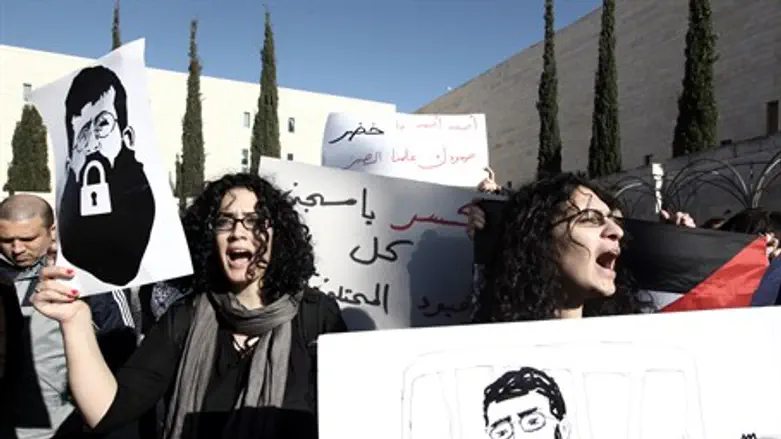
The Almagor terror victims association on Monday sharply criticized the governmental decision to release Khader Adnan, a senior member of the Islamic Jihad terrorist organization who has now secured his release from Israeli jails by hunger striking for a second time.
Adnan is accused of planning terrorist attacks and has openly called for attacks such as suicide bombings in public speeches caught on film. He ended his 56-day hunger strike Sunday after being promised a July 12 release - he was likewise freed in 2012 after carrying out a 66-day hunger strike.
"The decision to release the jihad activist together with another central activist who was arrested a year ago after the abduction and murder of the three teens indicates that the 'summer vacation' he also arrived for the terrorists," Almagor said cynically in a public statement.
Almagor Director Lt. Col. (ret.) Meir Indor said, "these are the 'masters' of terror, those who incite to terror and aid in establishing terror networks. In the past they were sentenced to jail and returned to terrorist activity."
While Adnan has been portrayed by radical leftist groups as a man imprisoned for no reason and without trial, Indor revealed that "the Shabak (Israel Security Agency - ed.) arrested them this time in an administrative detention and didn't bring them to court so as not to reveal and endanger the sources of the information (against them)."
"The motives for the arrests were checked by the senior legal system. It would be better even to let them die (hunger striking) in honor as Margaret Thatcher in England did rather than allow them to endanger the public."
The statement is a reference to the 1981 hunger strike by Irish prisoners protesting the British decision removing their special status as political prisoners. The British refused to concede and over ten of them died, including one who had been elected to the British Parliament by a voting region in North Ireland.
Indor concluded by saying "the decision to give in to the strike and pressure will cause a wave of hunger strikes and the release of more central terror activists who are highly dangerous."